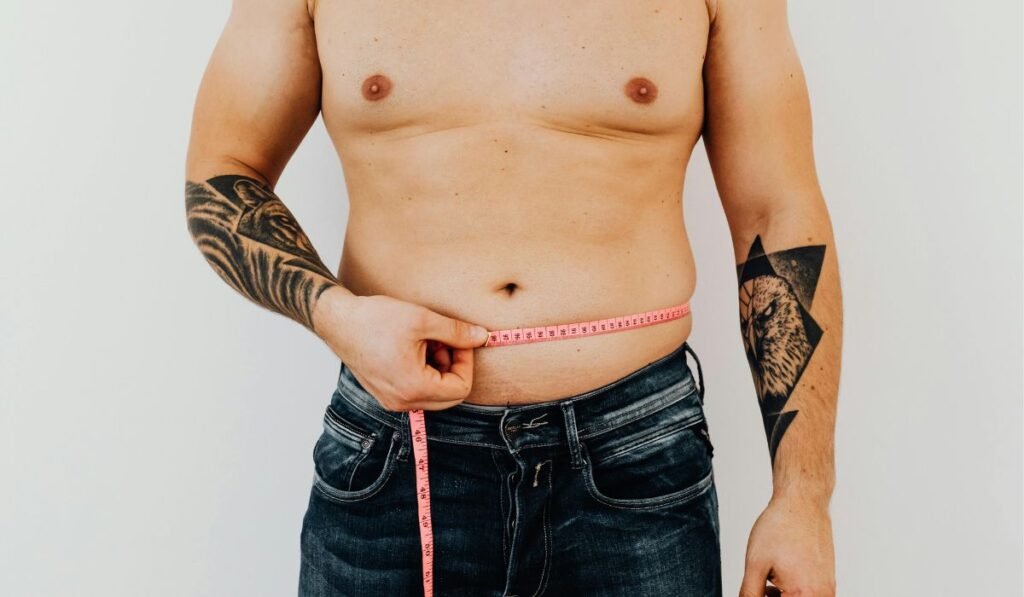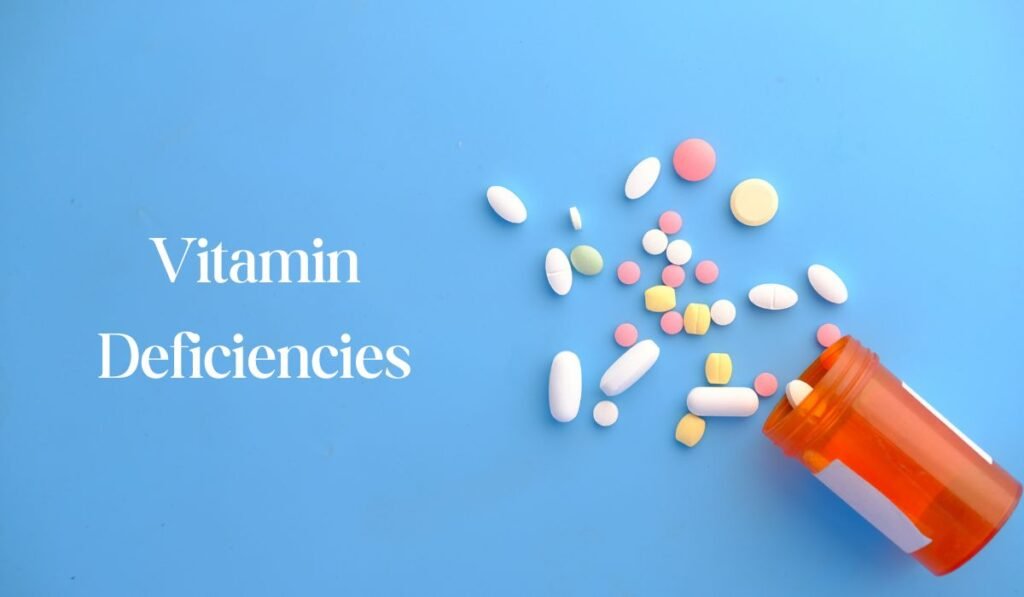You finish a hearty meal, loosen your belt, and instead of feeling satisfied, you feel like you’ve swallowed a balloon. The stomach is tight, heavy, and uncomfortable. This, my friend, is bloating.
It’s one of those issues almost everyone brushes off as “just gas,” yet if it happens often, it’s your gut waving a red flag. Long-term bloating is linked to digestive disorders like IBS (Irritable Bowel Syndrome), colitis, and even hormonal imbalance.
But here’s the good part — bloating is not some mysterious condition. It has very real causes, and with small adjustments, you can manage it without running to medicines every time.
What Actually Happens During Bloating?
When bloating strikes, your abdomen expands and feels hard. Many people notice this happens more in the evening than in the morning. Why? Because your body’s digestive capacity naturally slows down as the day progresses. A heavy dinner, eaten quickly, sits in the stomach longer, leading to fermentation and gas.
👉 Think of it like leaving food uncovered on the counter. By morning, it starts smelling off. The same thing happens in your gut with undigested food.
Gut Bacteria: The Hidden Players
Our gut is like a little city. Half the residents are “good bacteria” who help digest food, absorb nutrients, and keep things smooth. The other half — harmful bacteria — thrive on leftover undigested food, producing excess gas.
Antibiotics, junk food, or even stress can kill off the good guys, letting the bad ones take over. That’s when bloating becomes a regular guest.
💡 Pro Tip: Repopulate your gut with probiotics.
Instead of running to expensive supplements, start simple. A bowl of curd with a spoon of jaggery or mishri (not refined sugar) actually boosts live cultures. This trick comes from old Indian households where curd was never eaten plain — sweeteners weren’t just for taste, they were gut activators. For another boost, try half a teaspoon of apple cider vinegar in warm water daily for 15 days, then take a break.
Overeating: When “One More Bite” Backfires
Did you know your brain takes 20 minutes to register that your stomach is full? If you eat quickly, by the time your brain gets the memo, you’ve already overeaten. That’s why that second helping of rice feels fine in the moment but painful 30 minutes later.
💡 Pro Tip: Practice the “half-plate rule.”
Serve yourself half of what you think you’ll eat, and go for seconds only if you’re still hungry after 20 minutes. This is a practical hack many nutritionists recommend because it tricks you into eating slowly without obsessively counting bites.
Foods That Commonly Trigger Bloating
Here’s the tricky part — even healthy foods can be bloating villains.
- Pulses like rajma, lobia, urad dal, chana dal
- Cruciferous veggies like cabbage and cauliflower
- Raw sprouts or salad late at night
- Packaged salty foods (cause water retention)
- Excess sugar (feeds harmful gut bacteria)
💡 Pro Tip: Pair gas-producing foods with ghee or spices.
Ayurveda has long suggested adding a spoon of ghee to dals or cruciferous veggies. Modern nutrition backs this up — fat slows down fermentation, making these foods easier to digest. A pinch of hing (asafoetida) in dal is another grandma’s trick that science now recognizes for reducing intestinal gas.
Everyday Habits That Make It Worse
Sometimes it’s not the food, but how we eat:
- Drinking sodas or fizzy drinks
- Using straws
- Eating too fast or while talking
- Constant gum chewing
All of these push more air into your stomach.
💡 Pro Tip: Switch your beverage habit.
If you crave fizz, replace your cola with sparkling water + lemon + pinch of black salt. It gives that “kick” without loading on sugar and chemicals, and reduces the risk of excess bloating. I tried this swap during summer afternoons — the first week was tough, but now I don’t miss the cola crash at all.
Food Intolerance: The Silent Trigger
Sometimes bloating is less about “how much” and more about “what.” If your body can’t digest a particular food, even small amounts cause discomfort.
- Lactose intolerance: Milk and dairy
- Gluten sensitivity: Wheat, maida, suji
- Nut intolerance: Peanuts, almonds in some cases
💡 Pro Tip: Try an elimination week.
Cut out one suspected trigger food for 7–10 days. Notice how your stomach feels. If bloating reduces, you’ve found your culprit. Reintroduce it slowly to test tolerance. This is how many dieticians help clients pinpoint hidden intolerances without expensive tests.
Quick Relief When Bloating Hits
If you’re already clutching your stomach, these quick fixes work:
- Ajwain (carom seeds): Chew 1 tsp — its thymol compound relaxes stomach muscles.
- Warm ginger-lemon water: Ginger aids digestion, lemon alkalizes, black salt helps expel gas.
- Yoga (Pawanmuktasana): This “wind-releasing pose” is famous for a reason. Five minutes on the mat can do more than hours of discomfort.
💡 Pro Tip: Create a “bloat kit” at home.
Keep ajwain, ginger, and black salt in a small tin box in your kitchen. Whenever bloating strikes, you have a ready SOS solution without reaching for harsh antacids.
Build This Daily Habit
👉 Eat every 3–4 hours. Skipping meals or leaving long gaps lets bad bacteria ferment food in your gut, producing gas. A fruit, handful of makhana, or a cup of herbal tea between meals keeps digestion steady.
💡 Pro Tip: Set an alarm.
Life gets busy, and we often eat when it’s convenient, not when our body needs it. I personally started setting a reminder on my phone every 3.5 hours. At first, it felt silly — but soon I realized I wasn’t starving or bloated by dinner anymore. Small cue, big result.
📝 Quick Recap: Beat Bloating Daily
Here’s a simple checklist you can actually follow without turning your life upside down:
- Eat Slow, Eat Half First → Fill half your plate, wait 20 minutes, then decide if you need more.
- Support Your Gut → Add curd with a little jaggery/mishri once a day or sip diluted apple cider vinegar (15 days, then pause).
- Pair Foods Right → Add ghee/hing to dals & cruciferous veggies; avoid raw sprouts or salad late at night.
- Replace Fizzy Drinks → Swap cola with sparkling water + lemon + black salt for that same kick without the bloat.
- Carry a “Bloat Kit” → Keep ajwain, ginger, and black salt handy — natural SOS when discomfort hits.
- Space Meals 3–4 Hours Apart → No long gaps. Carry nuts, makhana, or fruit to keep digestion steady.
- Test Food Intolerance → Try a 7-day elimination for dairy or gluten if bloating persists, and note changes.
- Move a Bit After Meals → Even a 5-minute walk or a yoga stretch (Pawanmuktasana) helps digestion massively.
👉 Print it, save it, or stick it on your fridge. Small daily actions beat bloating better than any “miracle detox.”
📌 Must Read: Struggling with Belly Fat Too?
If bloating makes you feel uncomfortable, chances are belly fat has also been on your mind. While bloating is often about digestion, belly fat is more about lifestyle and long-term habits.
The good news? You don’t need intense diets or endless crunches. Small, practical changes like cutting hidden sugars, managing stress, and building a consistent sleep routine can start trimming your waistline naturally.
👉 I’ve broken this down step by step in another blog:
Reduce Belly Fat Naturally – Practical & Real Tips You Can Follow Daily
It’s a continuation of what you’re already learning here — simple, doable actions that fit into your routine. Definitely worth a read if you want results that last.
FAQs
Q1. Why do I feel bloated even after eating a small meal?
Feeling full after a tiny portion can be frustrating. In most cases, it’s not “just in your head.” Doctors explain that slow digestion, excess gas, or even swallowing too much air while eating can make your stomach feel stretched. If it happens frequently, it’s worth checking food intolerances (like dairy or gluten) or simply eating slower to reduce swallowed air.
Q2. Is bloating always a sign of something serious?
Not usually. Occasional bloating is common and linked to diet or habits—like overeating, carbonated drinks, or salty food. But if bloating is severe, painful, or happens almost daily, it could signal IBS, acid reflux, or other gut conditions. Many gastroenterologists say the red flag is when bloating interferes with sleep or daily life—then it’s time to see a doctor.
Q3. Which foods are most likely to cause bloating?
Some foods are notorious “bloat triggers.” Beans, onions, cabbage, and broccoli produce more gas during digestion. Dairy can also be a culprit if you’re lactose intolerant. Even healthy foods like apples or lentils can cause bloating if eaten in excess. Keeping a simple food diary often helps spot your personal triggers within a week or two.
Q4. How can I reduce bloating quickly after a heavy meal?
A few science-backed tricks:
Take a short 10–15 minute walk—this helps gas move along.
Sip warm water or herbal teas like peppermint or ginger, which relax digestive muscles.
Avoid lying flat immediately; instead, sit upright to aid digestion.
From personal experience, even a brisk evening walk after dinner makes a noticeable difference within 30 minutes.
Q5. Can lifestyle changes really prevent bloating long term?
Absolutely. Simple habits—chewing slowly, avoiding late-night heavy meals, staying hydrated, and cutting back on fizzy drinks—reduce bloating dramatically. Many nutritionists note that consistent meal timing and mindful eating help the gut “reset,” making bloating less frequent over time.
Final Thoughts
Bloating isn’t “just gas.” It’s your body telling you something’s off. The fix isn’t about fancy detox teas or skipping dinner but about:
- Eating slow and in sync with your body
- Pairing food smartly (dal + ghee, sprouts in the day, not night)
- Supporting your gut bacteria with probiotics
- Watching intolerances and fizzy habits
Try the small daily checks — like reading your body’s signals and keeping natural remedies handy. Over time, these little steps stack up into lasting comfort.
⚠️ Disclaimer: This article shares general information and lived experiences. It is not sponsored by any brand and not intended to defame or promote any company. For persistent bloating, consult a healthcare professional.
Nikita Palesha is a wellness advocate and eco-conscious writer who shares simple, sustainable tips for everyday living. She’s passionate about mindful choices that support a healthier planet and a balanced lifestyle.




